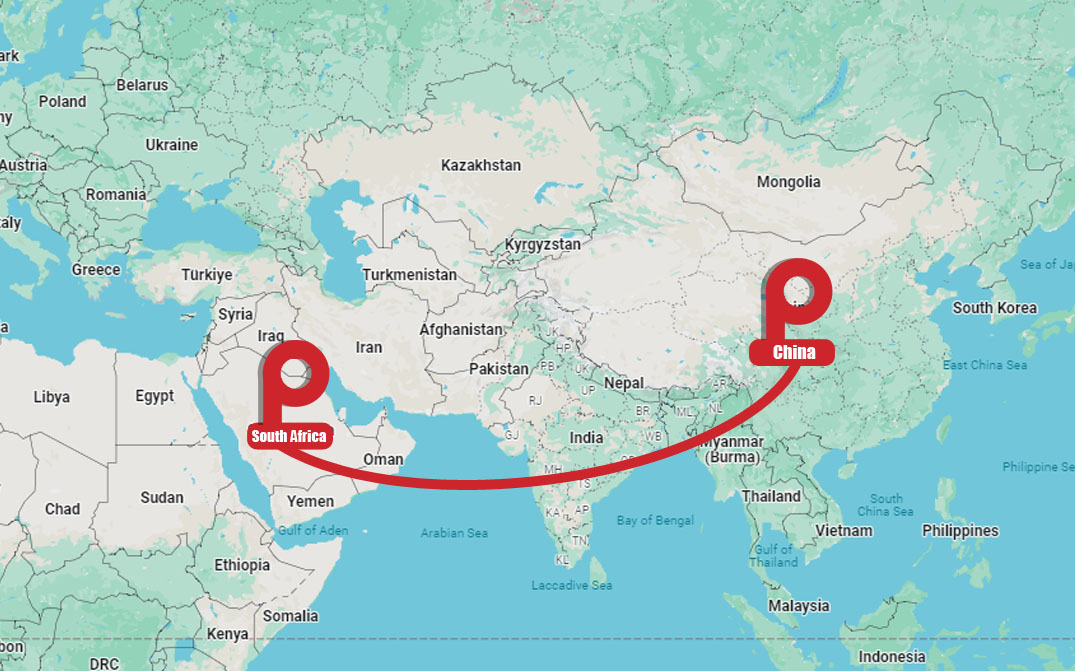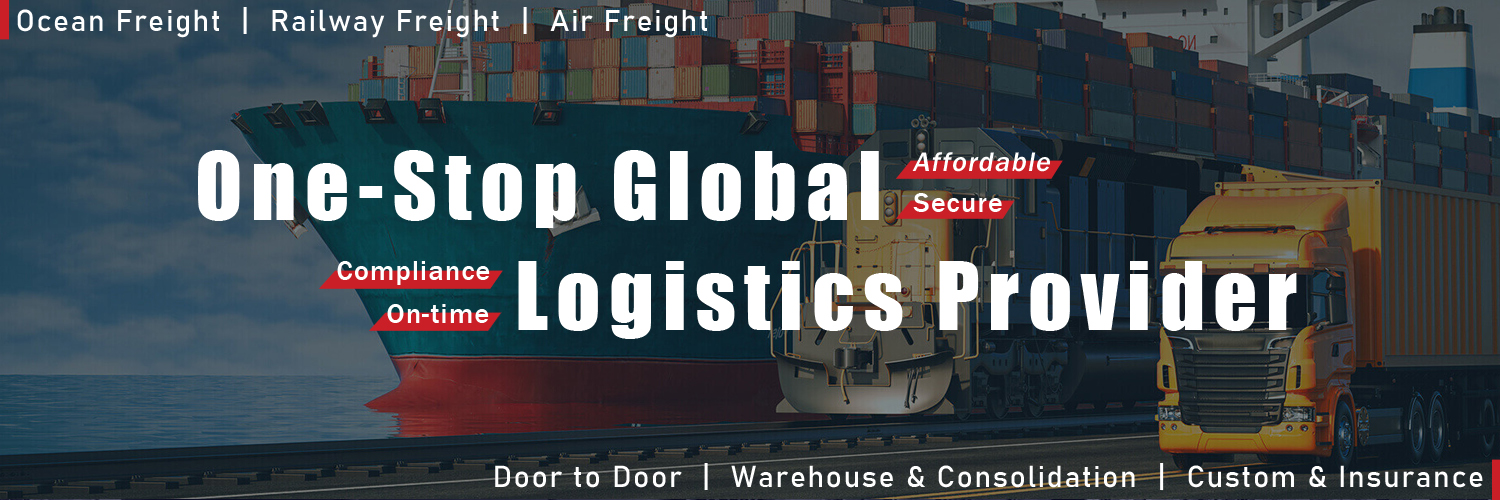Shipping From China To Saudi Arabia | Customs clearance & transportation costs
The customs clearance process is a critical component of shipping that demands precision and an in-depth understanding of the relevant procedures and regulations. In Saudi Arabia, a nation where trade is a cornerstone of the economy, customs clearance is a pivotal phase that guarantees the seamless transfer of goods across borders in a proficient and compliant manner. This procedure not only aids in expediting trade but also ensures that all stakeholders adhere to the pertinent laws and standards.
When exporting goods from China to Saudi Arabia, it is essential to be well-versed in the documentation, procedures, and associated duties necessary for customs clearance. This guide will offer an in-depth overview of the customs clearance process for shipments originating in China and destined for Saudi Arabia.
What is customs clearance?
Customs clearance is the procedure by which goods are inspected and validated to comply with Saudi Arabia's import regulations. This process typically involves presenting the required documentation, settling any applicable duties and taxes, and confirming that the goods adhere to Saudi Arabia's import criteria. Should the customs clearance process encounter issues, the delivery of the goods to their intended destination may be delayed or halted.
Main documents required for customs clearance in Saudi Arabia
When shipping from China to Saudi Arabia, the required customs clearance documents include:
- Commercial Invoice: This essential document provides precise shipment details, including the identities of the seller and buyer, a detailed description of the goods, their total value, and the agreed-upon payment terms.
- Packing List: This detailed list describes how the goods are packed, including the quantity, weight, and the order in which they are packed, facilitating a quicker inspection process.
- Bill of Lading (B/L) or Bill of Carriage: Serving as evidence of the contract between the shipper and the carrier, this document confirms the receipt of the goods for transportation and outlines the terms of carriage.
- Certificate of Origin: This certificate is vital for establishing the origin of the goods and is a key factor in determining the customs duties applicable under various trade agreements.
- Health and Quality Certificates: For products that must meet specific standards, such as food and chemicals, these certificates are essential to demonstrate compliance with the necessary regulations.
- Import License: For certain goods that require special authorization, an import license issued by the pertinent regulatory authorities must be presented to customs to proceed with the clearance process.
These documents, when submitted fully and accurately, ensure a smooth and barrier-free customs clearance process.
Duties and Taxes in Saudi Arabia
Saudi Arabia imposes duties and taxes on imported goods, including:
- Duties: In general, Saudi Arabia applies a 5% customs duty to a wide range of imported goods. However, the duty rate can vary depending on the type of goods, with some categories subject to higher or lower rates.
- Value Added Tax (VAT): A 15% VAT is levied on most imported goods in Saudi Arabia. The VAT is calculated based on the total value of the goods, which includes any applicable duties as well as transportation costs.
- Excise Tax: Beyond customs duties and VAT, certain products may also be subject to excise taxes in Saudi Arabia. These typically apply to items like tobacco, alcoholic beverages, and sugary drinks, which are considered luxury or harmful goods.
In order to accurately calculate duties and taxes, it is important to ensure that the customs code (HS code) and declared value of the goods are correct.
| Product Type | HS Code | Customs Duty | Additional Taxes |
|---|---|---|---|
| Electronics | 85 | 5-20% | 15% VAT |
| Mechanical equipment | 84 | 5-15% | 15% VAT |
| Textiles | 61-63 | 12% | 15% VAT |
| Toys | 95 | 10-20% | 15% VAT |
| Furniture | 94 | 15% | 15% VAT |
Saudi Arabia customs clearance process
Saudi Arabia customs clearance process generally includes the following steps:
Submit the Necessary Documents:
The customs clearance process initiates with the submission of the required documents. This critical step involves compiling all necessary paperwork and submitting them to customs authorities, either through a customs clearance agent or via the customs electronic system. Accuracy and completeness of these documents are paramount to avoid delays.
Inspection of Shipments:
Once the documents are submitted, the shipment undergoes an inspection phase. During this stage, customs officials examine the goods to ensure they match the details provided in the documentation and adhere to the prevailing standards and regulations in Saudi Arabia. This inspection is crucial for verifying the security and safety of the goods, as well as for preventing the importation of prohibited or illegal items.
Customs Duty Valuation:
Customs duties incurred on the shipment are assessed. These fees are determined based on multiple factors such as shipment value, type, and country of origin.
- Customs duties are determined based on the value of the shipment, its type, and the country of origin.
- These fees are assessed in accordance with Saudi customs laws and regulations.
Payment of Duties and Taxes:
After determining the duties, the importer or his agent must pay these fees and any additional taxes that may apply. This payment is usually made through the available payment channels provided by Saudi Customs.
Release of shipments:
Finally, once all documents are validated and complete and fees are paid, shipments are released. At this stage, the goods are ready for collection by the importer or his agent to be distributed or used according to the desired purpose.
Adhering to these steps accurately contributes to facilitating the clearance process and avoids the importer many potential complications.
How to ensure smooth customs clearance in Saudi Arabia?
To ensure a smooth customs clearance process for shipping goods from China to Saudi Arabia, follow these steps:
- Verify Documentation Accuracy: Confirm that all necessary documents are fully completed, accurate, and correspond with the goods being shipped. This will help prevent any hold-ups during the customs process.
- Engage a Customs Clearance Agent: Consider hiring a professional customs clearance agent who is well-versed in Saudi Arabia's customs laws and procedures. Companies like Presou Logistics can facilitate efficient customs clearance for your shipments from China to Saudi Arabia.
- Be Aware of Import Restrictions: Familiarize yourself with the list of prohibited or restricted items in Saudi Arabia, which may include alcohol, gambling devices, certain pharmaceuticals, and more. Ensure your shipment complies with these regulations before shipping.
- Prepay Duties and Taxes: To expedite the process and avoid potential delays, it's advisable to pay any applicable duties and taxes in advance, particularly if you are using the DDP (Delivered Duty Paid) shipping service.
For more information on DDP shipping from China to Saudi Arabia, you can explore the services and support offered by logistics providers who specialize in this route.
You may also be interested in: DDP Shipping from China to Saudi Arabia
Shipping from China to Saudi Arabia
There are a variety of shipping options from China to Saudi Arabia, depending on the type of goods, delivery time, and budget:
- Sea freight: For bulk goods, sea freight is usually the most economical option. Sea freight usually takes 20-30 days, depending on the distance between the Chinese port and the Saudi port.
- Air freight: Air freight is a faster mode of transportation, usually taking 5-7 days, but the cost is usually higher than sea freight.
Shipping Cost from China to Saudi Arabia
| Shipping Method | Shipping From China to Saudi Arabia (Cost) |
|---|---|
| Sea Freight (20ft Container) | Approx. USD 1,550 for a 20ft container |
| Sea Freight (40ft Container) | Approx. USD 2,350 for a 40ft container |
| Sea Freight (LCL) | Approx. USD 80 per cubic meters (m3) |
| Air Freight | Approx. USD 550 for 100kg |
| Door to Door Shipping | Approx. USD 5 to 12 per kgs or approx. USD 100 – 200 per m3 |
| DDP Air Freight | Approx. USD 6 to 15 per kgs |
| DDP Sea Freight | Approx. USD 100 to 200 per cbm (m3) |
| Express Shipping | Approx. USD 16.5 per Kgs |
You may also be interested in:
- Shipping Costs for 20ft & 40ft Containers from China to Saudi Arabia
- Door to Door Shipping from China to Saudi Arabia
- How Long does it take to Ship from China to Saudi Arabia
- Import from China to Saudi Arabia
Why choose Presou Logistics for customs clearance in Saudi Arabia?
Opting for an expert freight forwarding service can streamline the shipping journey from China to Benin. Presou Logistics, a premier freight forwarder, offers a comprehensive suite of logistics services, including sea freight, air freight, customs brokerage, and door-to-door delivery. We tailor the transportation mode to your specific requirements, facilitating a smooth and efficient shipment and customs clearance process, guaranteeing timely and secure delivery of your goods.
The cost of shipping from China to Benin is influenced by various elements, such as the type of transport, the weight, and the volume of the cargo. While sea freight is a popular and cost-effective option, air freight is ideal for time-sensitive shipments. Acquainting yourself with the customs clearance procedures and collaborating with a seasoned freight forwarder like Presou Logistics can pave the way for a hassle-free shipping experience. For tailored shipping solutions from China to Benin, feel free to reach out to us at Presou Logistics, where we offer expert logistics support.
 English
English 简体中文
简体中文 繁體中文
繁體中文 Afrikaans
Afrikaans አማርኛ
አማርኛ Español
Español العربية
العربية Français
Français Cebuano
Cebuano Български
Български Беларуская мова
Беларуская мова हिन्दी
हिन्दी বাংলা
বাংলা Português
Português Русский
Русский اردو
اردو فارسی
فارسی Türkçe
Türkçe كوردی
كوردی Deutsch
Deutsch 日本語
日本語 ไทย
ไทย Tiếng Việt
Tiếng Việt Italiano
Italiano עִבְרִית
עִבְרִית 한국어
한국어 Română
Română Nederlands
Nederlands Bahasa Indonesia
Bahasa Indonesia






